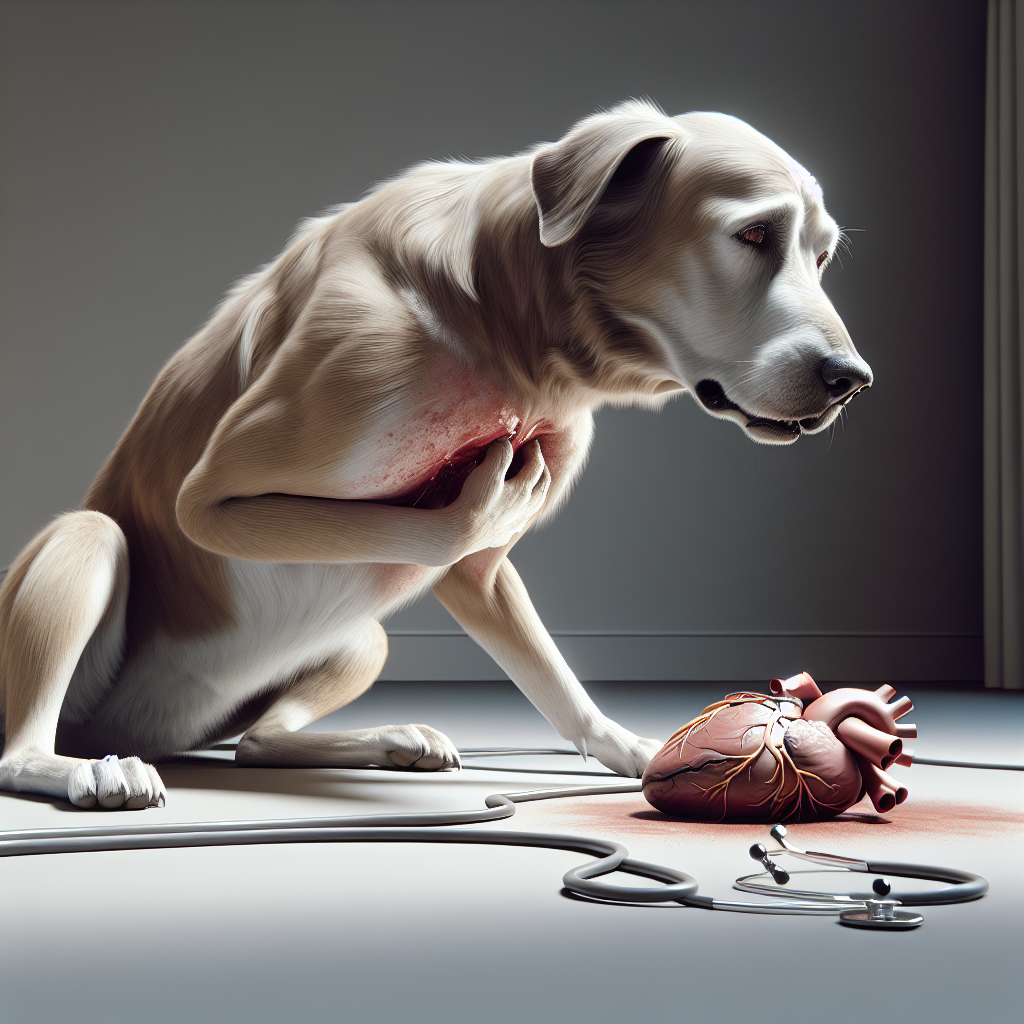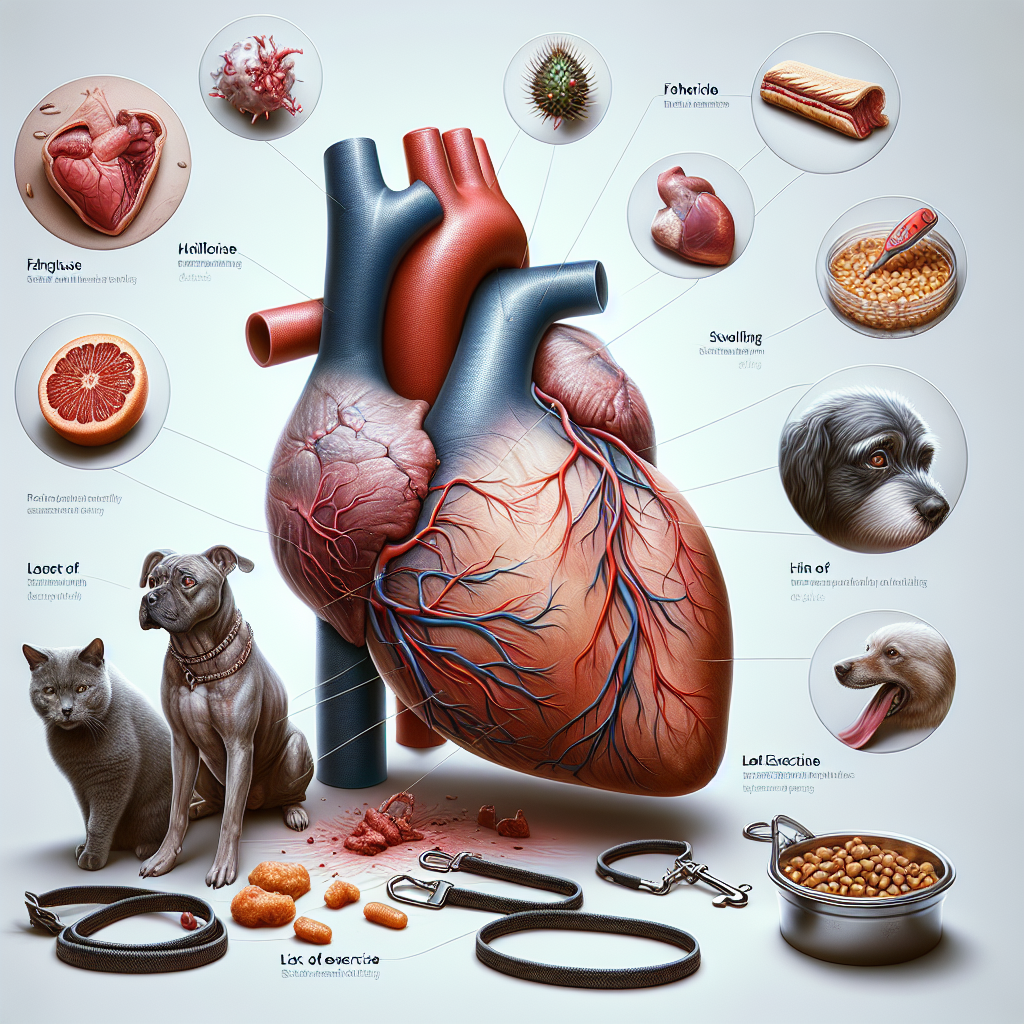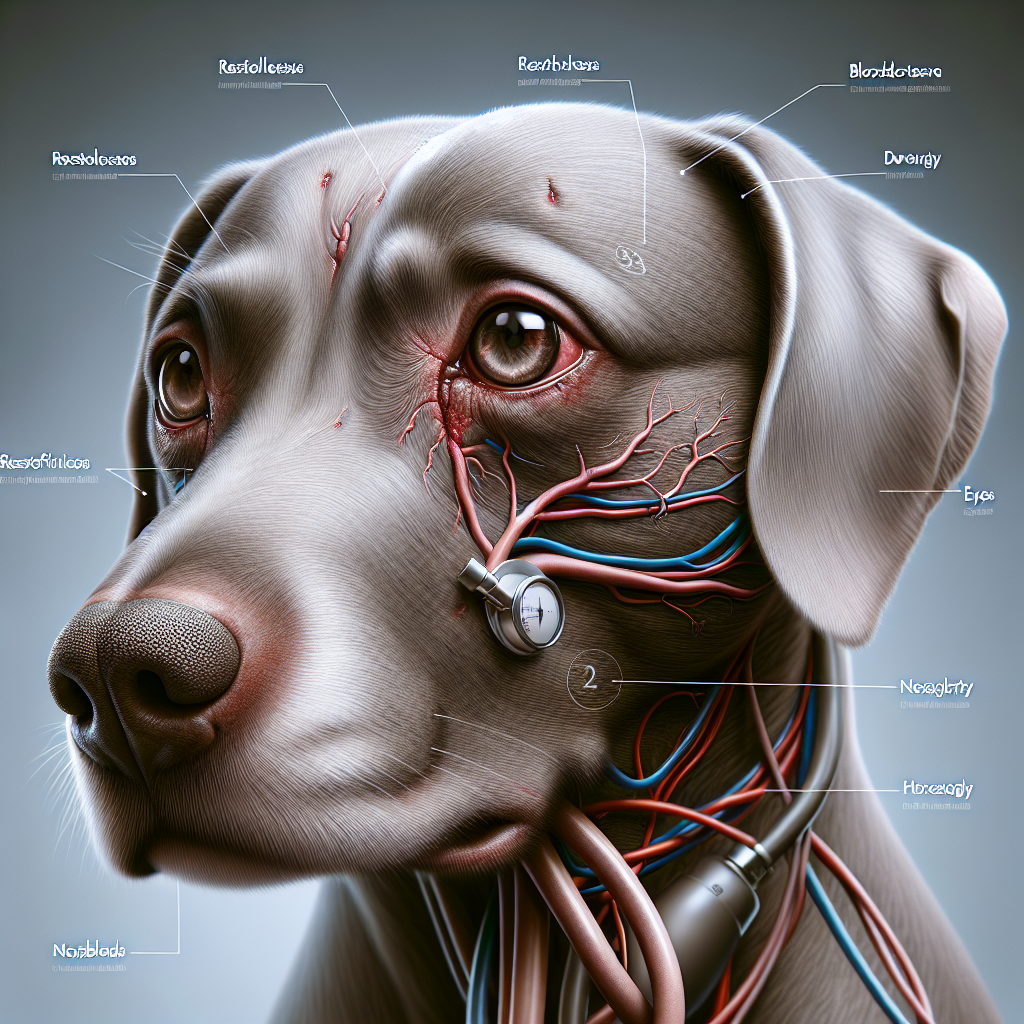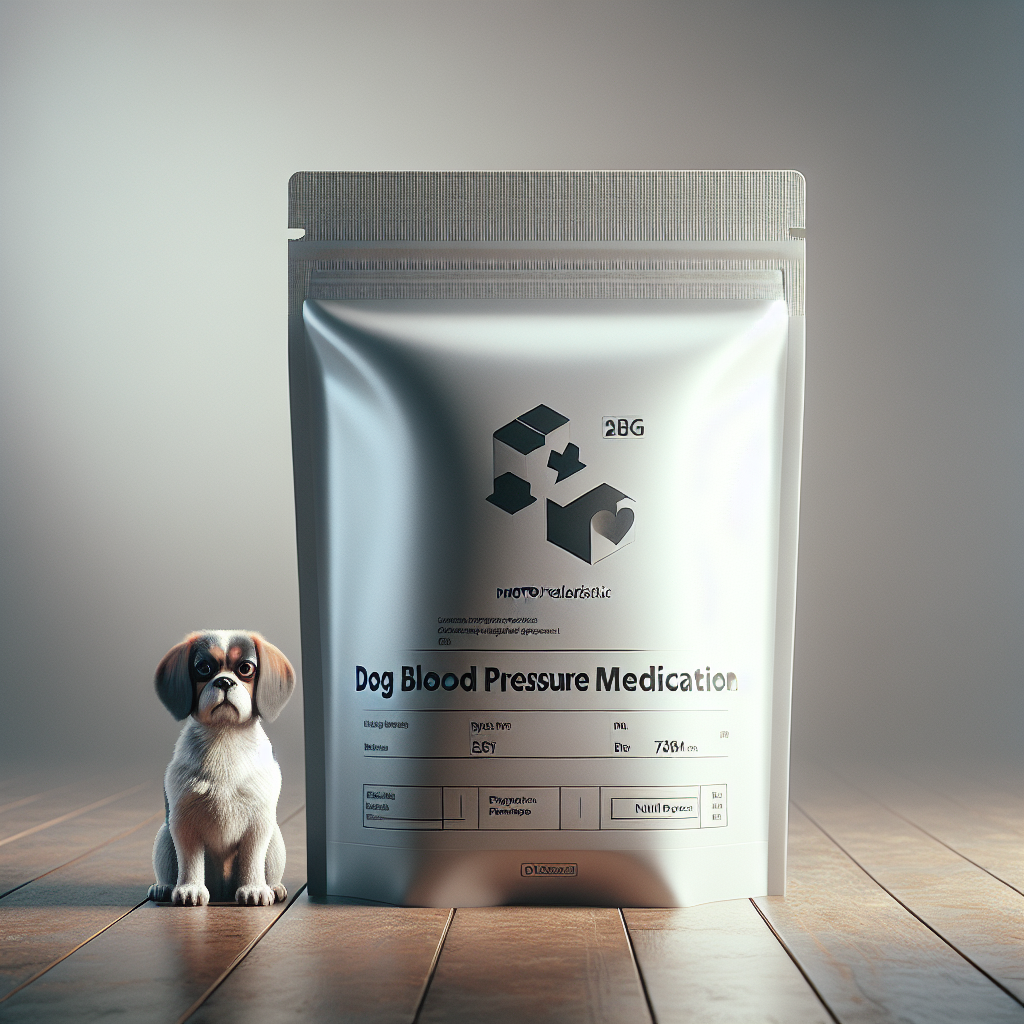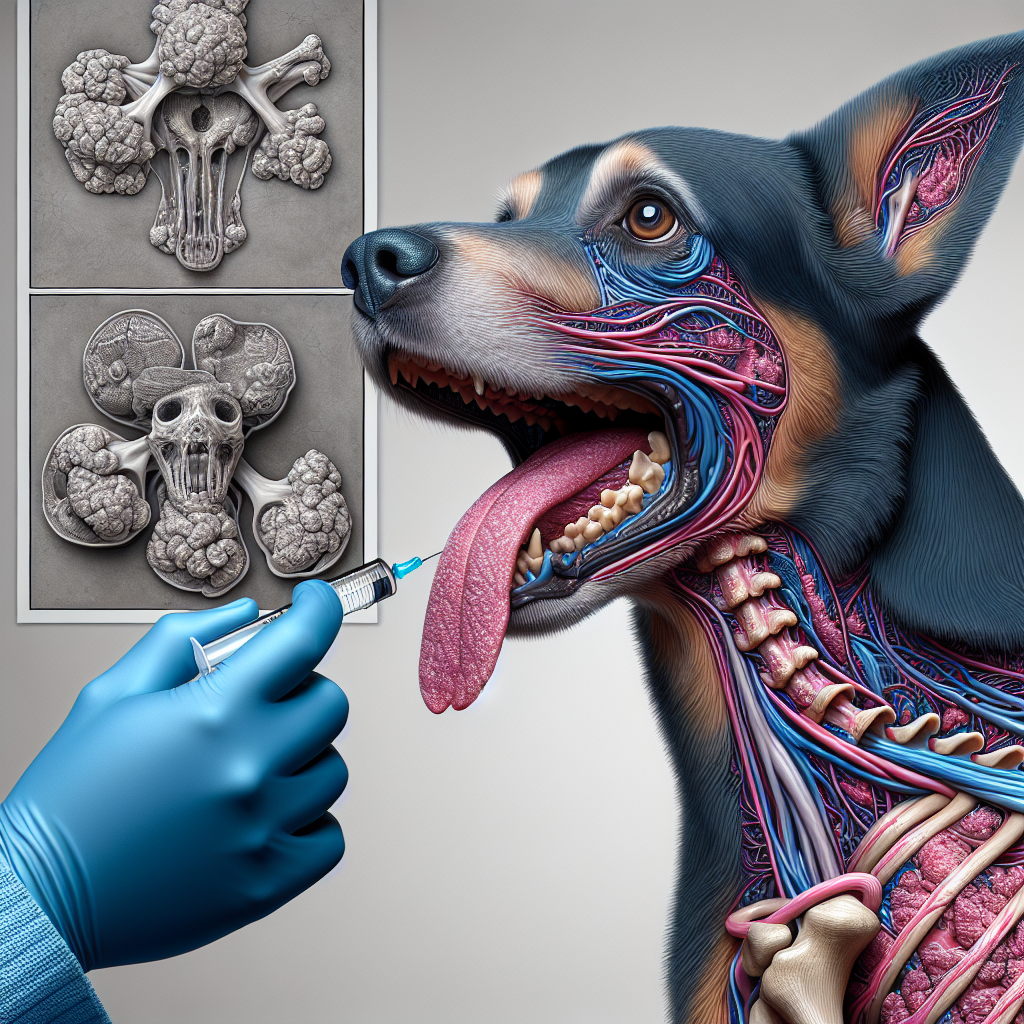Heart Attack Basics in Dogs
In the realm of canine health conditions, heart attacks can be a devastating reality for older dogs. Understanding the basics of heart attacks in dogs is crucial for dog owners, enabling them to recognize the signs and seek prompt medical attention. Let’s delve into the fundamentals of heart attacks in dogs.
Understanding Canine Heart Attacks
Canine heart attacks, although rare, have been observed in dogs of all breeds. They are most commonly associated with underlying heart disease, congenital heart abnormalities, and genetic predisposition (Wagwalking). A heart attack occurs when there is a sudden blockage of blood flow to the heart muscle, leading to a lack of oxygen supply. This can result in damage to the heart and potentially life-threatening consequences.
Rare Occurrence in Dogs
While heart attacks are relatively uncommon in dogs, it is important to note that they can occur. The rarity of heart attacks in dogs can be attributed to several factors, including differences in cardiovascular anatomy and physiology compared to humans. However, when a heart attack does occur in a dog, it requires immediate veterinary attention.
If you suspect that your dog may be experiencing a heart attack, it is crucial to be aware of the associated symptoms. While collapse is often the first observed symptom of a heart attack in dogs, other signs may include difficulty breathing, pale gums, weakness, and sudden-onset lethargy (Wagwalking). For a comprehensive list of heart attack symptoms in dogs, visit our article.
It is worth noting that the treatment and recovery process for a dog after a heart attack can be complex and expensive. The average cost of treating a heart attack in dogs can range from $3,000 to $10,000, with an average cost of $8,000 (Wagwalking). Initial treatment may involve resuscitation and supportive care, with medications used to improve circulation. Hospitalization is often necessary for continued monitoring until the dog stabilizes. For more information on the treatment and recovery process, refer to our section on treatment and recovery of heart attacks in dogs.
To prevent heart attacks in dogs, it is important to focus on overall heart health. Regular veterinary check-ups, a balanced diet, regular exercise, and the management of underlying heart conditions are essential (heart attack prevention in dogs). By proactively monitoring and managing your dog’s heart health, you can minimize the risk of heart attacks and provide them with a healthier and happier life.
Understanding the basics of heart attacks in dogs is the first step in recognizing the signs and seeking appropriate medical care. By being informed and proactive, dog owners can play a vital role in safeguarding the well-being of their furry companions.
Breeds Prone to Heart Conditions
While heart attacks in dogs are a rare occurrence, certain breeds are more prone to developing heart conditions. It’s important for dog owners to be aware of these high-risk breeds and the breed-specific heart diseases that may affect them.
High-Risk Breeds
-
Cavalier King Charles Spaniel: This breed has a high incidence of degenerative mitral valve disease (DMVD). According to PetMD, approximately 50% of Cavaliers develop a heart murmur by the age of 5, and by age 10, it affects 100% of them. Early symptoms of congestive heart failure in this breed may include decreased exercise tolerance, labored breathing, and coughing.
-
Dachshund: Dachshunds are prone to developing a leaky heart valve (DMVD) between 8 and 10 years of age. Regular annual veterinary checkups are recommended to detect this condition early, with an increase to biannual checkups as the Dachshund ages (PetMD).
-
Doberman Pinscher: Doberman Pinschers are at risk for dilated cardiomyopathy (DCM), a disease that causes the left ventricle to enlarge and function incorrectly. DCM occurs more frequently in male Dobermans, and symptoms may include fainting, weight loss, shortness of breath, coughing, or fluid retention (PetMD).
-
Boxer: Boxers are susceptible to arrhythmogenic right ventricular cardiomyopathy (ARVC), a genetic heart disease that can lead to life-threatening heart rhythm abnormalities. Symptoms may include exercise intolerance, fainting, and sudden death (PetMD).
Breed-Specific Heart Diseases
Apart from the high-risk breeds mentioned above, other breeds may also have breed-specific heart diseases. For example, smaller breeds like Chihuahuas, Boston Terriers, and Cavalier King Charles Spaniels are commonly affected by mitral valve disease, which is the most common form of heart disease seen in dogs (Grey Muzzle Organization). Regular check-ups with a veterinarian are crucial for early detection and management of any potential heart conditions in these breeds.
If you own a dog that belongs to a high-risk breed or is prone to breed-specific heart diseases, it’s important to be vigilant and proactive about their heart health. Regular check-ups, proper diet, exercise, and early intervention can help manage and potentially prolong the life of dogs at risk. Remember, early detection and treatment are key to preventing and managing heart conditions in dogs. If you’re looking for tips on heart disease prevention and management, check out our article on heart attack prevention in dogs.
Symptoms and Diagnosis
When it comes to heart attacks in dogs, it’s crucial for owners to be aware of the symptoms and understand the diagnostic process. Identifying the signs of a heart attack and obtaining a proper diagnosis are essential for timely intervention and appropriate treatment.
Identifying Heart Attack Symptoms
Symptoms associated with a heart attack in dogs can vary, but they may include collapse as the first observed symptom. It’s important to note that heart attacks in dogs are relatively rare compared to humans. However, recognizing the signs can make a significant difference in seeking prompt veterinary care.
Some common symptoms of a heart attack in dogs include:
- Fever (above 103 degrees Fahrenheit)
- Vomiting
- Panting or excessive breathing
- Increased heart rate (over 100 beats per minute for large breeds)
- Lethargy
- Head tilt
- Lack of mobility
- Rigidity
- Seizures
If you notice any of these symptoms in your dog, it’s crucial to seek immediate veterinary attention. Early detection and intervention can help improve the chances of a positive outcome. For more detailed information on heart attack symptoms in dogs, refer to our article on heart attack symptoms in dogs.
Diagnostic Tests for Heart Conditions
Diagnosing a heart attack in dogs involves a series of tests to evaluate the heart’s health and function. These diagnostic tests help veterinarians determine the underlying cause of the symptoms and develop an appropriate treatment plan.
Common diagnostic tests for heart conditions in dogs include:
-
Electrocardiography (EKG): This test records the electrical activity of the heart and can help identify irregular heart rhythms or abnormalities.
-
Complete Blood Cell Count (CBC): A CBC provides information about the dog’s overall health and can help identify potential underlying conditions.
-
Biochemistry Tests: These tests evaluate organ function and assess the dog’s overall health status.
-
Urinalysis: A urinalysis can provide additional insights into the dog’s health and help identify any kidney-related issues.
-
Thyroid Gland Function Tests: Thyroid function tests are performed to rule out any underlying thyroid conditions that may contribute to heart problems.
-
Echocardiography: This non-invasive test uses ultrasound to evaluate the heart’s structure, function, and blood flow. It provides valuable information about the heart’s health and can help identify any structural abnormalities or other heart conditions.
By conducting these diagnostic tests, veterinarians can accurately diagnose a heart attack in dogs and determine the most appropriate course of treatment. Regular cardiac monitoring may be necessary post-recovery, depending on the degree and cause of the heart attack. For more information on heart attack prevention and management, refer to our article on heart attack prevention in dogs.
It’s important to remember that a heart attack in dogs is a serious medical emergency, and immediate veterinary care is crucial. If you suspect your dog may be experiencing a heart attack, do not hesitate to seek professional help. Early intervention and proper treatment can significantly improve your dog’s chances of recovery and overall well-being.
Treatment and Recovery
When a dog experiences a heart attack, prompt medical attention is crucial. Immediate emergency care can greatly increase the chances of a successful outcome. In this section, we will discuss the emergency care for heart attacks in dogs as well as the long-term care and prognosis.
Emergency Care for Heart Attacks
Recognizing the signs of a heart attack in dogs is vital for taking swift action. If you suspect that your dog is having a heart attack, contact your veterinarian or an emergency veterinary clinic right away. They will guide you on the next steps to take and may advise you to perform cardiopulmonary resuscitation (CPR) if necessary.
Initial treatment for a heart attack in dogs often involves resuscitation and supportive care. This may include administering oxygen, providing intravenous fluids, and using medications to thin the blood for ease of circulation. Hospitalization is usually necessary for continued heart monitoring until the dog stabilizes.
The cost of treating a heart attack in dogs can vary, ranging from $3,000 to $10,000, with an average cost of $8,000. It’s important to be prepared for these potential expenses and have a plan in place to provide the necessary care for your furry companion (Wagwalking).
Long-Term Care and Prognosis
The recovery of a dog after a heart attack depends on the severity and underlying cause of the attack. Lifelong treatment and regular veterinary check-ups may be required to manage the dog’s cardiac health. Your veterinarian may prescribe medications to control the symptoms, improve heart function, and prevent future heart-related issues.
Activity restriction and dietary changes may also be recommended to support your dog’s recovery. It’s important to follow your veterinarian’s guidance regarding exercise limitations and nutrition to ensure optimal heart health. Additionally, regular monitoring of the dog’s heart through diagnostic tests and examinations will help assess the effectiveness of the treatment and make any necessary adjustments.
The prognosis for a dog after a heart attack can vary depending on several factors, including the overall health of the dog, the severity of the heart attack, and the underlying heart condition. While some dogs may fully recover and lead normal lives, others may require lifelong management and have a higher risk of future cardiac events. It’s essential to work closely with your veterinarian to create a comprehensive care plan tailored to your dog’s specific needs.
Prevention plays a crucial role in managing heart health in dogs. By implementing heart disease prevention tips and maintaining regular veterinary check-ups, you can help reduce the risk of heart-related issues and provide the best possible care for your beloved furry friend.
Prevention and Management
When it comes to the health of our beloved dogs, prevention and proactive management play a crucial role in reducing the risk of heart attacks and promoting overall heart health. By taking certain precautions and following a few simple guidelines, dog owners can help keep their furry companions safe and healthy.
Heart Disease Prevention Tips
-
Maintain a Healthy Diet: Providing a well-balanced and nutritious diet is essential for maintaining heart health in dogs. Consult with your veterinarian to ensure that your dog’s diet meets their specific nutritional needs. Avoid feeding your dog excessive amounts of high-fat or high-sodium foods, as these can contribute to heart disease development.
-
Regular Exercise: Regular physical activity is vital for keeping your dog’s heart healthy and maintaining a healthy weight. Engage your dog in daily exercise routines such as walks, playtime, or interactive games. However, it’s important to consider your dog’s age, breed, and any underlying health conditions when determining the appropriate exercise regimen.
-
Dental Care: Poor oral hygiene can lead to dental disease and potentially impact heart health in dogs. Plaque, tartar, and bacteria in the dog’s mouth can enter their bloodstream and cause heart issues. Therefore, regular teeth brushing and occasional dental treats can help keep their hearts healthy. Consult with your veterinarian for dental care recommendations specific to your dog’s needs.
-
Regular Veterinary Check-ups: Regular veterinary visits are crucial for early detection and prevention of heart diseases in dogs, especially as they age. Veterinarians can perform routine examinations, monitor heart health, and identify any potential issues before they become more serious. Early intervention can greatly improve the outcomes for dogs with heart conditions.
-
Heartworm Prevention: Heartworms are parasites that can infect dogs through mosquito bites, residing and breeding in their heart, lungs, and blood vessels. Preventive medications are available to protect dogs from heartworms. Regular administration of heartworm preventives, as recommended by your veterinarian, is essential to ensure your dog remains protected.
For more information on heart attack prevention in dogs, visit our comprehensive guide on heart attack prevention in dogs.
Managing Heart Health in Dogs
Once a dog has been diagnosed with a heart condition or is at a higher risk due to their breed or age, managing their heart health becomes crucial. Here are some important considerations:
-
Medication and Treatment: Follow your veterinarian’s prescribed treatment plan diligently, including any medications, dietary changes, or lifestyle modifications. Administer medications as instructed and attend scheduled follow-up appointments to monitor your dog’s progress.
-
Monitor Symptoms: Be vigilant in observing any changes in your dog’s behavior, appetite, or activity levels. Recognizing early signs of heart problems, such as coughing, difficulty breathing, or reduced stamina, can help you seek prompt veterinary care.
-
Stress Reduction: Minimize stressors in your dog’s environment as much as possible. Provide a calm and comfortable living space, and avoid situations that may induce anxiety or excitement. Stress can exacerbate heart conditions, so creating a peaceful environment can contribute to their overall well-being.
-
Weight Management: Maintaining an optimal weight is important for dogs with heart conditions. Obesity can put additional strain on the heart, so work with your veterinarian to develop a weight management plan if necessary. This may include adjusting their diet and exercise routine.
-
Follow-up Care: Regular veterinary check-ups are vital for dogs with heart conditions. Your veterinarian will monitor your dog’s progress, adjust medications if needed, and provide guidance on managing their specific condition.
Remember, heart disease in dogs can develop without warning, and animals are often adept at concealing symptoms. Therefore, regular veterinary check-ups and proactive management are crucial for maintaining your dog’s heart health. By implementing preventive measures and managing heart conditions effectively, you can help ensure a longer and healthier life for your furry companion.
Heart Disease vs. Heart Attacks
Understanding the distinction between heart disease and heart attacks in dogs is essential for dog owners to recognize the signs, seek appropriate care, and provide necessary support to their furry companions. Let’s explore common heart diseases in dogs and the key differences and similarities between heart disease and heart attacks.
Common Heart Diseases in Dogs
There are several types of heart diseases that can affect dogs, with varying prevalence among different breeds. Some common heart diseases in dogs include:
| Heart Disease | Breeds Prone |
|---|---|
| Mitral Valve Disease | Chihuahuas, Boston Terriers, Cavalier King Charles Spaniels |
| Dilated Cardiomyopathy | Boxers, Irish Wolfhounds, Great Danes, Dobermans |
| Dietary-Associated Cardiomyopathy | All breeds |
Mitral valve disease is the most common form of heart disease seen in dogs, particularly in smaller breeds such as Chihuahuas, Boston Terriers, and Cavalier King Charles Spaniels. On the other hand, dilated cardiomyopathy, where the left chamber of the heart becomes enlarged, is often observed in larger breeds such as Boxers, Irish Wolfhounds, Great Danes, and Dobermans. Additionally, dietary-associated cardiomyopathy, linked to the use of legumes in dog food, is an increasingly recognized form of heart disease that can occur in dogs of any size, breed, or age (Grey Muzzle Organization).
It’s important to note that specific heart disorders may be more prevalent in certain breeds, such as mitral regurgitation in Cavalier King Charles Spaniels, dilated cardiomyopathy in Doberman Pinschers, and arrhythmogenic right ventricular cardiomyopathy in Boxers (Merck Vet Manual).
Key Differences and Similarities
Distinguishing between heart disease and heart attacks in dogs is crucial for understanding the nature of these conditions. Here are some key differences and similarities:
Differences:
- Heart Disease: Heart disease refers to various conditions affecting the heart’s structure and function. It can include issues like valve abnormalities, cardiomyopathies, and congenital heart defects.
- Heart Attack: A heart attack, also known as myocardial infarction, occurs when the blood flow to a section of the heart muscle is blocked, leading to tissue damage.
Similarities:
- Heart Disease and Heart Attacks: Both heart disease and heart attacks can lead to symptoms such as coughing, difficulty breathing, exercise intolerance, and weakness. However, it’s important to note that heart attacks are relatively rare in dogs compared to humans, and the disease progression in dogs differs from that in humans (American Heart Association).
- Risk Factors: Dogs do not develop atherosclerosis, a buildup of plaque in the arteries, due to poor diet and lack of exercise, unlike humans. Risk factors such as smoking and excessive alcohol use that contribute to heart attacks in humans are not applicable to the types of heart diseases affecting dogs.
Understanding the differences and similarities between heart disease and heart attacks provides a foundation for dog owners to recognize potential issues and seek appropriate veterinary care. Regular check-ups, early detection, and a heart-healthy lifestyle can help in managing heart diseases in dogs. For more information on heart disease prevention and management, refer to our articles on heart attack prevention in dogs and managing heart health in dogs.






